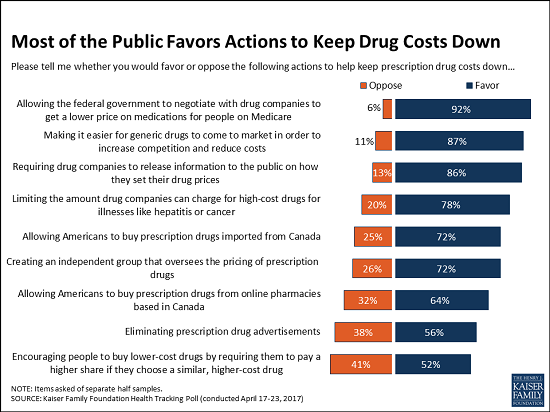A medicine that is
unaffordable is inherently unavailable, and a medicine that is unavailable and
not able to be afforded is a medicine that is denied”
— Daniel Hines
ST. LOUIS, MISSOURI, USA, January
30, 2017 /EINPresswire.com/
-- The Publisher of RxforAmericanHealth, AmericanRxBillofRights and TodaysSeniorsNetwork,
has sent an open letter to President Donald Trump and Health and Human Services
Secretary Rep. Tom Price of Georgia seeking clarification on whether the
designee supports the President’s campaign pledge of a role for personal
importation of brand-name prescription medicines from Tier One countries as a
way to lower prescription drug costs.
Hines also sent the letter to the members of the U.S. Senate.(To read the letter, click here).
“We applaud President Trump’s continued expressions of support for personal importation as evidenced by his campaign pledge, and more recently, his sharp criticism of the predatory pricing practices of Pharma that deny access to literally millions of Americans to vital medicines because the high prices render the medicines unaffordable and unavailable,” says Publisher Daniel Hines.
But, Hines continues, during the Senate Judiciary Committee hearings for Rep. Price, he and Senator Bernie Sanders (D-VT) engaged in an exchange based upon Rep. Price’s continued references to his goal being ‘accessibility’ to health care for all Americans.
“Senator Sanders correctly pointed out that accessibility is not the same as the ability to purchase or afford adequate medical care,” Hines notes.
The problem, Hines explains, is that “a medicine that is unaffordable is inherently unavailable, and a medicine that is unavailable and not able to be afforded is a medicine that is denied.”
“However, a recent article from Roll Call offers Rep. Price an opportunity to shed light on his definition of accessibility to health care, “Hines says, noting that he sought an exemption from the Food and Drug Administration seizure of medicines of a constituent.
The exemption was sought because the constituent said the price of the medicine in the U.S. was unaffordable and he turned to Canada to personally import the medicine at a much lower cost.
Roll Call noted that “…In February 2006, Rep. Price’s office appealed to the FDA on behalf of a constituent in need of a medicine for a surgery. While both drugs were available for sale in the United States, the patient was trying to import them from Canada, where they were presumably cheaper. The drugs were being held in customs, and the FDA explained to Price that it wasn’t legal to import the drugs manufactured outside of the country, even though there are some exceptions to this policy…”
Ironically, one of the exceptions under which personal importation is allowable is if the medicine is unavailable, Hines explains.
“This directly addresses the question of whether or not a medicine is unavailable if it is unaffordable, or is it ‘accessible’ if available in the U.S., but the patient can’t afford it.”
Hines notes: “When Rep. Price wrote the letter, the FDA and U.S. Customs were engaged in collusion for such seizures which were accompanied by a letter threatening the patient who personally imported their medicines that by signing the letter they were admitting they were guilty of violating the law, that they were pledging that they would not attempt to import medicines in the future, and, if they did, their signature on the Customs letter would constitute an admission of guilt.”
“I and other advocates working on behalf of the rights of Americans to have true access to safe, affordable prescription medicines worked with contacts in the Senate to have the seizures halted, and to also specifically deny funding to Customs for such seizures,” Hines says.
That is why we are asking Rep. Price to now explain if his definition of ‘access ’includes support of the rights of Americans to engage in personal importation as he sought—and failed in-- on behalf of his constituent.
Another question arises from a recent letter from many Democrat members of the U.S. House of Representative to President Barrack Obama, in which they sought to “… encourage your administration to explore implementing drug importation rules that are already part of U.S. law. Under authority from the Medicare Prescription Drug Improvement and Modernization Act of 2003, the Secretary of Health and Human Services can certify the importation of prescription drugs from other countries under specific qualifications. This regulatory action would pose no risk to public health and safety and could result in a significant reduction in the cost of prescription drugs to American families.”
This leads to specific questions that should be addressed by the President and Rep. Price:
1. Will Rep. Price, if confirmed as HHS Secretary, continue his previously stated support of personal importation as exampled by his letter on behalf of a constituent turning to personal importation;
2. Does Rep. Price believe that a prescription medicine is in and of itself unavailable because it is unaffordable, thereby meeting the FDA’s stated and printed decision that a medicine or device that is unavailable is thereby exempt from restrictions of personal importation?
3. Will Rep. Price, if confirmed, follow the directive and intent of Congress as stated in the Medicare Prescription Drug Improvement and Modernization Act of 2003?
“The designee’s response to these questions is of prime importance,” Hines concludes. “The fact is that personal importation of safe, affordable medicines from Tier One countries is the most immediate relief from the predatory drug pricing practices of Pharma.”
Hines also sent the letter to the members of the U.S. Senate.(To read the letter, click here).
“We applaud President Trump’s continued expressions of support for personal importation as evidenced by his campaign pledge, and more recently, his sharp criticism of the predatory pricing practices of Pharma that deny access to literally millions of Americans to vital medicines because the high prices render the medicines unaffordable and unavailable,” says Publisher Daniel Hines.
But, Hines continues, during the Senate Judiciary Committee hearings for Rep. Price, he and Senator Bernie Sanders (D-VT) engaged in an exchange based upon Rep. Price’s continued references to his goal being ‘accessibility’ to health care for all Americans.
“Senator Sanders correctly pointed out that accessibility is not the same as the ability to purchase or afford adequate medical care,” Hines notes.
The problem, Hines explains, is that “a medicine that is unaffordable is inherently unavailable, and a medicine that is unavailable and not able to be afforded is a medicine that is denied.”
“However, a recent article from Roll Call offers Rep. Price an opportunity to shed light on his definition of accessibility to health care, “Hines says, noting that he sought an exemption from the Food and Drug Administration seizure of medicines of a constituent.
The exemption was sought because the constituent said the price of the medicine in the U.S. was unaffordable and he turned to Canada to personally import the medicine at a much lower cost.
Roll Call noted that “…In February 2006, Rep. Price’s office appealed to the FDA on behalf of a constituent in need of a medicine for a surgery. While both drugs were available for sale in the United States, the patient was trying to import them from Canada, where they were presumably cheaper. The drugs were being held in customs, and the FDA explained to Price that it wasn’t legal to import the drugs manufactured outside of the country, even though there are some exceptions to this policy…”
Ironically, one of the exceptions under which personal importation is allowable is if the medicine is unavailable, Hines explains.
“This directly addresses the question of whether or not a medicine is unavailable if it is unaffordable, or is it ‘accessible’ if available in the U.S., but the patient can’t afford it.”
Hines notes: “When Rep. Price wrote the letter, the FDA and U.S. Customs were engaged in collusion for such seizures which were accompanied by a letter threatening the patient who personally imported their medicines that by signing the letter they were admitting they were guilty of violating the law, that they were pledging that they would not attempt to import medicines in the future, and, if they did, their signature on the Customs letter would constitute an admission of guilt.”
“I and other advocates working on behalf of the rights of Americans to have true access to safe, affordable prescription medicines worked with contacts in the Senate to have the seizures halted, and to also specifically deny funding to Customs for such seizures,” Hines says.
That is why we are asking Rep. Price to now explain if his definition of ‘access ’includes support of the rights of Americans to engage in personal importation as he sought—and failed in-- on behalf of his constituent.
Another question arises from a recent letter from many Democrat members of the U.S. House of Representative to President Barrack Obama, in which they sought to “… encourage your administration to explore implementing drug importation rules that are already part of U.S. law. Under authority from the Medicare Prescription Drug Improvement and Modernization Act of 2003, the Secretary of Health and Human Services can certify the importation of prescription drugs from other countries under specific qualifications. This regulatory action would pose no risk to public health and safety and could result in a significant reduction in the cost of prescription drugs to American families.”
This leads to specific questions that should be addressed by the President and Rep. Price:
1. Will Rep. Price, if confirmed as HHS Secretary, continue his previously stated support of personal importation as exampled by his letter on behalf of a constituent turning to personal importation;
2. Does Rep. Price believe that a prescription medicine is in and of itself unavailable because it is unaffordable, thereby meeting the FDA’s stated and printed decision that a medicine or device that is unavailable is thereby exempt from restrictions of personal importation?
3. Will Rep. Price, if confirmed, follow the directive and intent of Congress as stated in the Medicare Prescription Drug Improvement and Modernization Act of 2003?
“The designee’s response to these questions is of prime importance,” Hines concludes. “The fact is that personal importation of safe, affordable medicines from Tier One countries is the most immediate relief from the predatory drug pricing practices of Pharma.”
Daniel Hines
TodaysSeniorsNetwork
6363992849
email us here
TodaysSeniorsNetwork
6363992849
email us here




